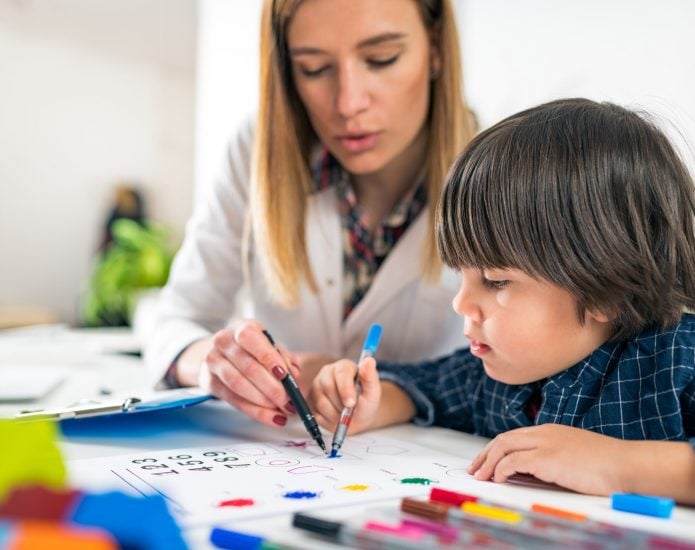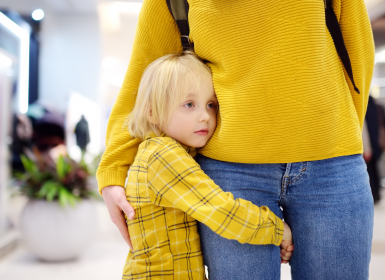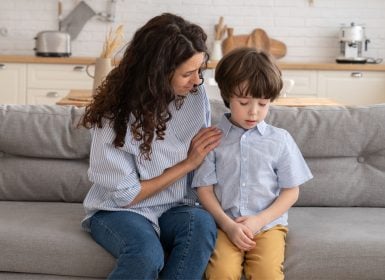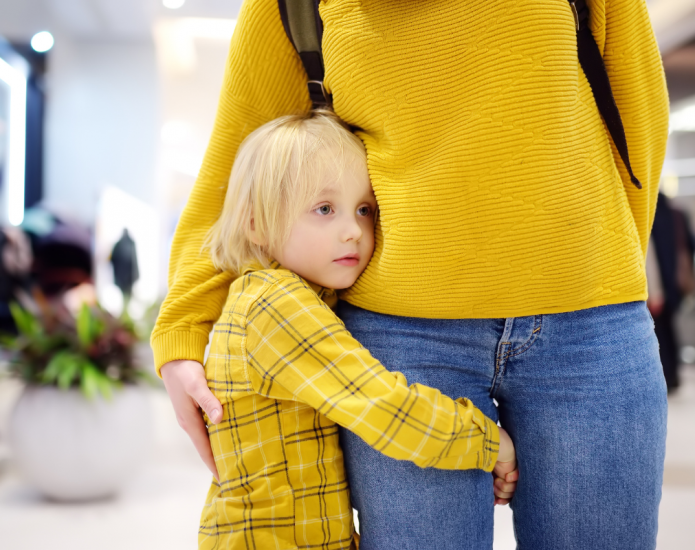- Feel sad most of the time
- Feeling hopeless or worthless
- Negative self-talk and low self-esteem
It’s a normal part of a child’s emotional development to experience large shifts in their emotions and it is normal for children to feel down, be sensitive to criticism and express sudden outbursts of emotion such as anger or annoyance. As children develop, they become more aware of their emotions and learn to regulate them.
However, if these negative changes in mood persist for weeks or months, your child may be showing signs of childhood depression and may need additional support to cope and manage their symptoms.
What is Childhood Depression
Depression formally known as Major Depressive Disorder, is a mood disorder characterised by persistent feelings of sadness, low mood and loss of interest or pleasure. Understanding childhood depression is crucial for addressing broader issues related to a child’s mental health. Children with depression may present with emotional, physical and behavioural changes that interfere with their ability to participate in school, make friends and perform daily tasks.
Signs of Childhood Depression:
Children and young people can have difficulty expressing complex emotions, which can make recognising your child’s symptoms of depression difficult. Challenging emotional and behavioural changes (in line with those listed below) that persist for several weeks may indicate that your child is experiencing depression.
Children with depression can express their feelings very differently at different life stages. Often, they might display a combination of psychological, physical and behavioural symptoms.
Signs of depression may include:
Psychological Symptoms
Physical Symptoms
- Significant fatigue, loss of energy and motivation
- Changes in appetite such as under or overeating
- Disturbed sleep patterns such as under or oversleeping
- Complains of stomach pains, headaches or muscle pains
- Regression in toileting, such as bed wetting
Behavioural Symptoms
- Lack of interest or pleasure in activities they usually enjoy
- Avoidance of social situations
- Changes in performance at school
- Separation anxiety or increased clinginess to a parent
- Poor concentration
- More easily agitated or upset
- Increased physical behaviours like hitting, kicking and biting
- Tearful
In some cases, children may experience intense depressive symptoms that can put them at risk of self-harm or suicidal thinking, which can be distressing for parents and the child. There are several 24-hour professional support services available to contact when your child is experiencing emotional distress including Kids Helpline and Lifeline. If you feel that your child’s safety is at risk, it’s important to seek immediate professional help by calling 000.
What Causes Depression in Children?
There are many factors that can cause children and adolescents to develop depression. Risk factors for depressive disorders include genetics, physical health and stressful or traumatic events.
Genetic factors – children with a family history of depression and mental illness have a greater likelihood of developing a depressive disorder.
Biological factors – children who live with chronic disease, physical illness, disability or conditions such as ADHD, Autism, or bipolar disorder are more likely to experience depression due to the significant social and emotional barriers they face.
Social factors – children who experience bullying or face social disadvantage such as Aboriginal and Torres Strait Islander children and refugees have an increased risk of developing depression.
Stressful or traumatic events – children who have experienced the loss of a loved one, natural disasters, accidents, neglect, physical abuse or sexual abuse have a high risk of developing depression.
How is Depression Diagnosed in Children?
Depression is unlikely to go away on its own so if you have concerns about your child’s wellbeing, it’s important to seek professional help straight away. Children and adolescents are still developing their sense of self, so early intervention is important in helping prevent more severe depressive illness in later life.
If your child is displaying signs of depression, make an appointment with your child’s doctor to discuss their symptoms. A GP can perform physical examinations to rule out any other medical concerns that may be causing mood changes and can refer your child to a paediatrician, child psychiatrist or child psychologist for further assessment and support.
A mental health professional such as a GP, paediatrician, psychologist or psychiatrist can diagnose depression using criteria from the Diagnostic and Statistical Manual of Mental Disorders (DSM). A comprehensive assessment usually involves a questionnaire that asks about different aspects of the child’s life, including:
- Family history including socio-economic background and any family members with a history of depression, anxiety disorders and other psychiatric disorders
- Your child’s sleep and eating patterns
- Changes in your child’s behaviour
- Any stressful or traumatic experiences your child has had
- Psychiatric symptoms such as psychosis or mania
- Self-harm and suicide risk
Mental health professionals may use a range of screening tools alongside the questionnaire to better understand your child’s emotions and behaviours.
Treatment and Support Options
Depression is a serious mental health condition that requires timely and effective intervention, and treating depression in children involves a comprehensive approach. Various treatment options are available, each tailored to meet the specific needs of the child. The most common treatment and support options for depression in children include:
Psychological therapy: Child psychologists can use evidence-based approaches like cognitive behavioural therapy (CBT) and interpersonal therapy to help children reframe negative thoughts, develop problem-solving skills and engage in activities that promote wellbeing. A child’s therapist may use various therapeutic approaches such as relaxation techniques to help manage depression. For younger children and children with limited language, play therapy and art therapy may help children to express their feelings and cope with symptoms of depression.
Family therapy: A child psychologist can also work with parents and other family members to develop strategies to support the child and provide support in building positive relationships.
Lifestyle changes: Promoting consistent sleep routines, eating a balanced and nutritious diet and increasing physical activity can help children to cope with the symptoms of depression. Encouraging your child to engage in mindfulness exercises and activities they usually find fun can also help.
Medication: For children with severe depressive disorders, antidepressant medication may be recommended to treat depression effectively. The most common medications used in depression treatment are Selective Serotonin Reuptake Inhibitors (SSRIs). These medications can have significant side effects so must be prescribed and managed by a medical professional.
Early intervention and ongoing support are key to helping children recover from depression and lead healthy, fulfilling lives.
Our Depression Support Services
How Families Can Support Their Child
Seeking professional support is crucial for helping a child with depression. However, there are many ways parents can support children to manage depressive feelings at home.
Spend Quality Time Together: Spend dedicated time with your child to talk to them about how they’re feeling. This could be while cooking together, while playing together or while driving somewhere. If they aren’t opening up to you, encourage them to speak with another trusted adult.
Keep a consistent routine: Ensure you are eating meals, sleeping and exercising around the same time each day to give them the best opportunity to manage their emotions and behaviours.
Promote physical activity: Find an outdoor area to play their favourite sport or do some stretching. Physical activity can be low effort like walking around the park or throwing a frisbee.
Encourage Mindfulness: Practice deep breathing exercises, guided meditation, journaling and craft activities to support relaxation.
Talk to your child’s teacher: Learn more about your child’s experience at school and exchange strategies with the teacher to ensure consistent support throughout their day.
Access online support: Encourage your child to access youth mental health services such as Kids Help Line.
While it’s understandable that you are concerned about your child’s mental health, it’s important to look after your own health and wellbeing as well so you can best support your child.
Depression and Wellbeing Articles
Financial Assistance for Children with Depression
Children with depression may be eligible to receive Medicare rebates for up to 10 sessions with a mental health professional through the Better Access to Mental Health Care initiative.
A mental health care plan from your GP or referral from a psychiatrist or paediatrician is required if seeking to claim Medicare rebates through the Better Access to Mental Health Care program.
Explore More Topics
Helpful Resources
Kids Helpline
Kid Helpline is a free 24/7 online and phone counselling service for children and young people.
Lifeline
Lifeline is a 24-hour crisis support and suicide prevention service for Australians of all ages.
Beyond Blue
Beyond Blue is a mental health organisation offering 24/7 assistance and information on depression, anxiety and suicide.
ReachOut
ReachOut offers anonymous 24/7 online peer support for young Australians experiencing mental health difficulties.
13Yarn
13Yarn is a national support line, providing 24/7 culturally appropriate crisis support for Aboriginal and Torres Strait Islander peoples.











